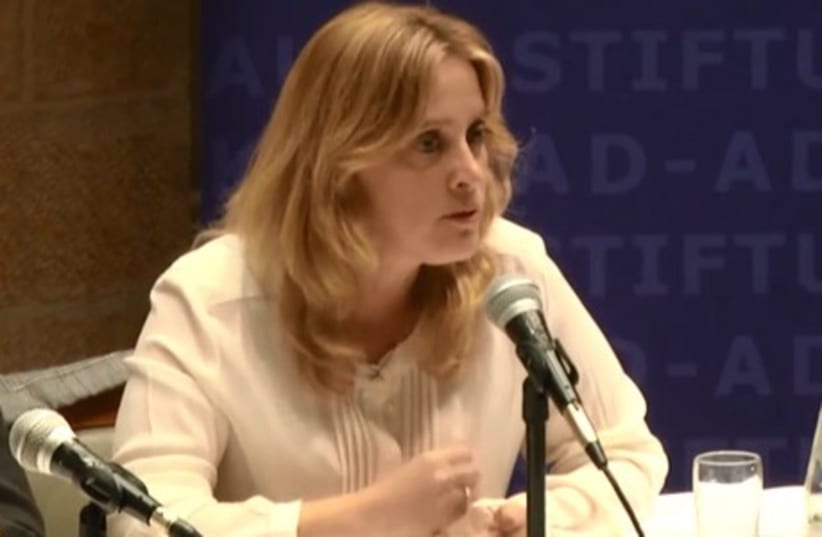In a time period when international lawyers are more involved in security issues than ever before, there needs to be greater exchange between international law experts and security experts, said Col. (res.) Pnina Sharvit Baruch about her recent conference at the Institute for National Security Studies (INSS).
Baruch is former head of the IDF's international law division and currently heads INSS's program on law and national security.
She brought together a range of international law experts ranging from academics to Justice Ministry and IDF legal division representatives to human rights activists to discuss a range of relevant issues (all of which were also published in a short academic volume) with an audience of mostly non-lawyers with security backgrounds.
Baruch said that most articles and lectures on international law and security are written and presented in lawyer-speak and are neither marketed nor easily accessible to non-lawyers for whom such issues have still become extremely relevant.
The lectures ranged from Baruch on legal principles for humanitarian intervention in Syria to Bar-Ilan University's Dr. Ziv Bohrer on "Lawyers in war: who needs them," to IDF officer Assaf Harel (speaking in his capacity as an individual) on challenges to defending Israel's new natural gas rigs from terror attacks.
Bohrer elaborated on the problem, nothing that many security officials might view the intervention of lawyers as "annoying, slowing down soldiers from doing their job" and might say that the situation "was not like this in the past."
Bohrer quoted a letter from founding prime minister David Ben-Gurion on February 10, 1948, months before the State of Israel was established, in which Ben-Gurion pushed hard for courts martial of Palmah and other security forces who were suspected of breaking the laws of war.
Following Ben-Gurion's letter to Yaakov Riftin, a member of a Defense Council which managed the pre-state Yishuv's security issues, Riftin issued a report which, in part, led to the formation of what eventually became the IDF's legal division and court system.
Bohrer said that during the 1948-1949 Independence War, with an army of 70,000 soldiers, there were 2,424 courts martial judgments with an average of 400 cases being handled per month.
He added that this showed that even back to Israel's first war, lawyers and judges were heavily involved in regulating the army, "and yet Israel still managed to win!"
Bohrer's clear conclusion was that security officials could relax a bit more about the involvement of lawyers in army business since this involvement was neither new nor, based on past experience, a threat to reducing the IDF' effectiveness.
Harel discussed dilemmas confronting defending the gas installations of the country's coast in light of international law's limiting any security zone to a mere 500 meter radius around the installations.
Beyond 500 meters, the principle of freedom on the high seas reigns, though nations have specific economic rights to exploit natural resources within certain other zones.
He pointed out how insufficient such a limited zone was since many ships could cross that distance in under 40 seconds and a fired missile or projectile could cross that distance in an even shorter period.
This situation is exacerbated by the sense that, due to the installations' importance to the state's future energy strategy, a terror group could use inexpensive means to cause massive damage to the state.
Harel noted that the 500 meter radius was selected in 1954 without foreseeing the developments of current terror threats and said that the best solution would be to enlarge the security zones.
However, Canada, in 1985, and Brazil, in 2007, attempted to enlarge the security zone in the context of the International Maritime Organization (IMO), and as of 2010, both attempts had failed.
Accepting the reality that the inadequate 500 meter radius might not change anytime soon, Harel discussed having larger "light" security zones in which Israel would not necessarily legally be able to take certain enforcement actions against trespassers, but would request that incoming vessels identify themselves.
In the absence of identifying themselves, surveillance of the vessels might be justified and other suspicious actions by the vessels could lead to enforcement actions even beyond the 500 meter radius as Israel has taken actions far beyond its coast in the past when sufficient intelligence indicated hostile intentions by a ship.
